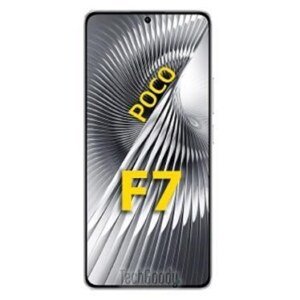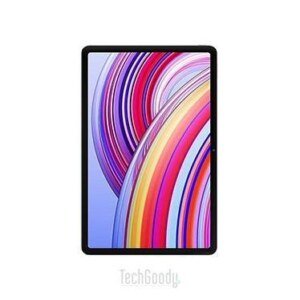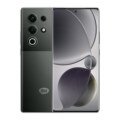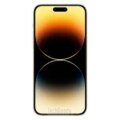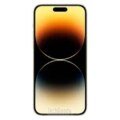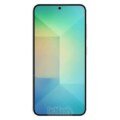- Xiaomi 15 Ultra: Bigger Battery, Faster Charging
- iQOO Neo 10 Pro: Dimensity 9400 Performance, 144Hz AMOLED Display, All for $549
- Vivo S20 and Vivo S20 Pro Launch: 4500-Nit Display, 50MP Cameras, 6500mAh Battery, Starting at $314
- Is the Nubia Z70 Ultra Worth It? Features, Pricing, and Everything You Need to Know
- Samsung’s Bold Leap: Revolutionary XR Virtual Reality Glasses Set to Launch in 2025
- Latest Tech News & Mobile Specifications
- Products
- Compare
- Xiaomi Poco F7 VS Xiaomi Poco Pad Comparison
Xiaomi Poco F7 VS Xiaomi Poco Pad Comparison
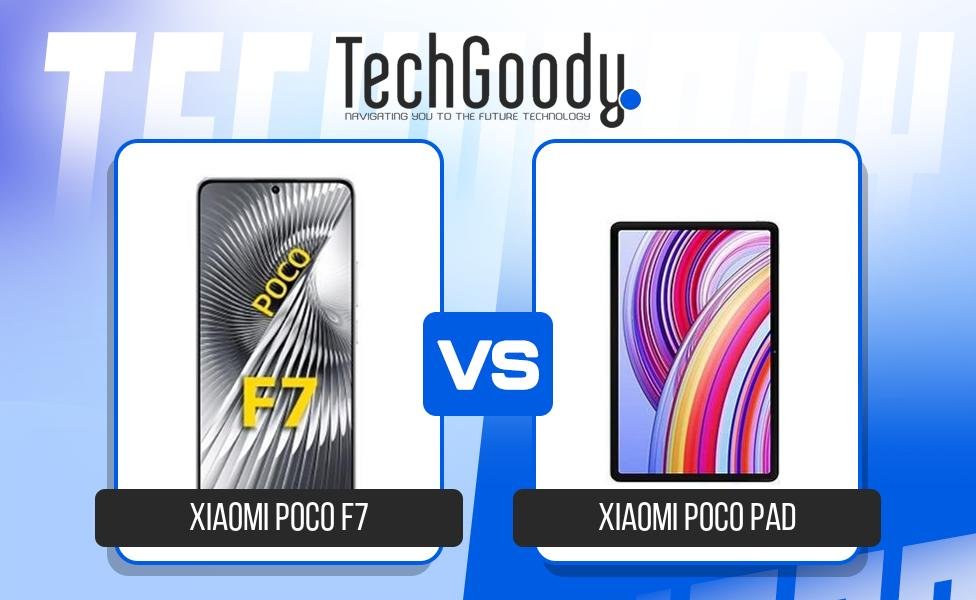
Xiaomi Poco F7 VS Xiaomi Poco Pad Comparison: A Techgoody.com Deep Dive
Choosing between a smartphone and a tablet can be a tough decision. This Xiaomi Poco F7 VS Xiaomi Poco Pad Comparison will help you decide which device best suits your needs. This in-depth analysis, brought to you by Techgoody.com, directly compares the Xiaomi Poco F7 and the Xiaomi Poco Pad, covering key features, performance, and overall value. This Xiaomi Poco F7 VS Xiaomi Poco Pad Comparison will highlight the strengths and weaknesses of each device, helping you make an informed choice. Understanding the nuances of this Xiaomi Poco F7 VS Xiaomi Poco Pad Comparison is key to selecting the perfect device for you.
This comprehensive Xiaomi Poco F7 VS Xiaomi Poco Pad Comparison will delve into the specifics of each device, allowing you to make a well-informed decision. Whether you prioritize portability, processing power, or screen size, this comparison will provide clarity. We’ll explore every aspect to ensure this Xiaomi Poco F7 VS Xiaomi Poco Pad Comparison is thorough and insightful.
Xiaomi Poco F7: A Deep Dive into the Flagship Contender
The Xiaomi Poco F7 aims to be a flagship killer, packing impressive specs at a competitive price point. This Xiaomi Poco F7 VS Xiaomi Poco Pad Comparison highlights the Poco F7’s strengths. Its powerful processor and stunning display are clear advantages. Let’s examine the details.
The Poco F7 boasts a vibrant 6.72-inch AMOLED display with a 120Hz refresh rate, ensuring smooth visuals and responsive touch. Under the hood, a powerful Qualcomm Snapdragon processor (exact model may vary depending on the region) delivers exceptional performance, coupled with ample RAM and storage options. The camera system, typically featuring a high-resolution main sensor and supporting lenses, is designed for capturing detailed photos and videos. The large battery capacity ensures all-day usage, often complemented by fast charging capabilities. This Xiaomi Poco F7 VS Xiaomi Poco Pad Comparison underscores its impressive features.
Unveiling the Xiaomi Poco F7: Features and Benefits
- Stunning AMOLED Display: The high refresh rate and vibrant colors make for an immersive viewing experience.
- Powerful Processor: Enables smooth multitasking and excellent gaming performance.
- Advanced Camera System: Captures high-quality photos and videos in various lighting conditions.
- Long-lasting Battery: Provides all-day usage on a single charge, often with fast charging support.
- Ample Storage: Offers various internal storage options, often expandable via microSD card.
Xiaomi Poco F7: Weighing the Pros and Cons
This Xiaomi Poco F7 VS Xiaomi Poco Pad Comparison wouldn’t be complete without a balanced view. While the Poco F7 offers many advantages, it’s crucial to consider potential drawbacks. This Xiaomi Poco F7 VS Xiaomi Poco Pad Comparison will present both sides of the coin.
Pros: High-performance processor, stunning display, excellent cameras, long battery life, expandable storage (in some variants).
Cons: Potential software bloat (MIUI skin), price point might not be as budget-friendly as some other Poco phones, availability might vary depending on region.
Xiaomi Poco Pad: A Deep Dive into Xiaomi’s Latest Tablet
Shifting our focus to the Xiaomi Poco Pad, this Xiaomi Poco F7 VS Xiaomi Poco Pad Comparison will highlight its unique strengths. Unlike the Poco F7, the Poco Pad prioritizes a large screen and extended battery life, making it ideal for media consumption and productivity.
The Poco Pad features a large display, typically around 11-12 inches, providing ample screen real estate for multitasking, gaming, and media consumption. While the processor may not be as powerful as the Poco F7’s, it’s still capable of handling most tasks smoothly. The standout feature is often the massive battery capacity, ensuring days of usage on a single charge. This Xiaomi Poco F7 VS Xiaomi Poco Pad Comparison reveals that the Poco Pad is designed for different usage scenarios.
Unveiling the Xiaomi Poco Pad: Features and Benefits
- Large Display: Perfect for media consumption, productivity, and gaming.
- Long Battery Life: Enables extended use without needing frequent charging.
- Sufficient Processing Power: Handles everyday tasks and light gaming effortlessly.
- Portability (Relative to other tablets): While larger than a phone, it’s still relatively portable compared to larger tablets.
Xiaomi Poco Pad: Weighing the Pros and Cons
This Xiaomi Poco F7 VS Xiaomi Poco Pad Comparison needs to consider both the advantages and disadvantages of the Poco Pad. A balanced perspective is essential for a fair comparison. This Xiaomi Poco F7 VS Xiaomi Poco Pad Comparison provides this critical balance.
Pros: Large display, long battery life, relatively portable, usually comes at a competitive price point.
Cons: Processor might not be as powerful as the Poco F7, camera quality might be average, no cellular connectivity in some variants.
Techgoody’s Verdict on the Xiaomi Poco F7 VS Xiaomi Poco Pad Comparison
The Xiaomi Poco F7 VS Xiaomi Poco Pad Comparison boils down to your priorities. The Poco F7 is a high-performance smartphone ideal for users who need a powerful and versatile device for everyday tasks and multimedia consumption. The Poco Pad, on the other hand, shines as a media consumption and productivity device with its large screen and exceptional battery life. This Xiaomi Poco F7 VS Xiaomi Poco Pad Comparison concludes that both devices have their own strengths and target different user needs.
The choice between the Xiaomi Poco F7 and the Xiaomi Poco Pad ultimately depends on your individual needs and preferences. Consider what aspects are most important to you – portability, processing power, screen size, battery life, and camera quality. This Xiaomi Poco F7 VS Xiaomi Poco Pad Comparison has hopefully illuminated the key differences.
Frequently Asked Questions (FAQs)
To further clarify this Xiaomi Poco F7 VS Xiaomi Poco Pad Comparison, here are some frequently asked questions:
Q: Which device is better for gaming?
A: The Poco F7 generally offers better gaming performance due to its more powerful processor.
Q: Which device has better battery life?
A: The Poco Pad usually boasts significantly longer battery life thanks to its larger battery capacity.
Q: Which is more portable?
A: The Poco F7, being a smartphone, is considerably more portable than the Poco Pad.
Q: Which device is better for media consumption?
A: The Poco Pad’s larger screen makes it a better choice for consuming media such as movies and videos.
This Xiaomi Poco F7 VS Xiaomi Poco Pad Comparison aims to be a valuable resource for your decision-making process. Remember to check the latest specifications and pricing before making your final purchase.
General
| Status | Coming Soon Coming Soon |
| Released | May, 2024 May, 2024 |
Build
| OS | Android 14 OS Android 14 OS |
| Dimensions | 160.5 x 74.5 x 8 mm 280 x 181.9 x 7.5 mm |
| Weight | 179 g 571 g |
| SIM | Dual Sim, Dual Standby (Nano-SIM) No Cellular Conectivity |
| Colors | Black, Green, Titanium Dark Gray, Blue, Green |
Frequency
| 2G Network |
SIM1: GSM 850 / 900 / 1800 / 1900 SIM2: GSM 850 / 900 / 1800 / 1900 SIM1: N/A |
| 3G Network | HSDPA 800 / 850 / 900 / 1700(AWS) / 1900 / 2100 |
| 4G Network | LTE |
| 5G Band | SA/NSA |
Processor
| CPU | 3.0 Ghz Octa Core Octa-core (4 x 2.40 GHz Cortex-A78 + 4 x 1.95 GHz Cortex-A55) |
| Chipset | Qualcomm Snapdragon Qualcomm SM7435-AB Snapdragon 7s Gen 2 (4 nm) |
| GPU | Adreno Adreno 710 |
Display
| Technology | AMOLED Capacitive Touchscreen, Multitouch IPS LCD Capacitive Touchscreen, 16M Colors, Multitouch |
| Size | 6.7 Inches 12.1 Inches |
| Resolution | 1220 x 2712 Pixels (~443 PPI) 1600 x 2560 Pixels (~249 PPI) |
| Protection | Corning Gorilla Glass Victus+ Corning Gorilla Glass 3 |
| Extra Features | 120Hz 120Hz, Dolby Vision, 600 nits |
Memory
| Built-in | 256GB Built-in, 8GB RAM 128/256GB Built-in, 6/8GB RAM, UFS 2.2 |
| Card | microSD Card, (supports up to 512GB) microSDXC (dedicated slot) |
Camera
| Main | Triple Camera: 50 MP + 13 MP + 8 MP, LED Flash 8 MP, LED Flash |
| Features | 6 10 |
| Front | 32 MP 8 MP, Video (1080p@30fps) |
Connectivity
| WLAN | Wi-Fi 802.11 a/b/g/n/ac/6, dual-band Wi-Fi 802.11 a/b/g/n/a/6, dual-band, Wi-Fi Direct |
| Bluetooth | v5.4 with A2DP, LE 5.2, A2DP, LE |
| GPS | A-GPS support & Glonass, BDS, QZSS, (B1I+B1c) Yes |
| USB | USB Type-C 2.0, OTG USB Type-C 2.0 |
| NFC | Yes No |
| Data | GPRS, Edge, 3G (HSPA 42.2/5.76 Mbps), 4G LTE, 5G Capable |
| Infrared | Yes N/A |
| FM Radio | FM Radio No |
Features
| Sensors | Accelerometer, Compass, FingerPrint (under display, optical), Gyro, Proximity Accelerometer, Gyro, Proximity (accessories only) |
| Audio | 24-bit/192kHz Hi-Res & Hi-Res wireless audio, Speaker Phone 3.5mm Audio Jack, 24-bit/192kHz Hi-Res audio, stereo speakers (4 speakers) |
| Browser | HTML5 HTML5 |
| Games | Built-in + Downloadable Built-in + Downloadable |
| Torch | Yes Yes |
| Extra | NFC (market/region dependent), IP64, dust and water resistant, Photo/video editor, Document viewer Stylus support (magnetic), Glass front + Gorilla Glass 3), aluminum frame, aluminum back, Document viewer, Photo video/editor |
Battery
| Capacity | (Non removable), 5000 mAh (Non removable), 10000 mAh |
| Charging | Fast battery 100W Fast charging 33W wired, PD3.0, QC3+ |
Price
| Price in USD | $632 $289 |
Ratings
| Ratings | 5 stars 5 stars |

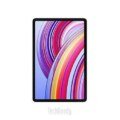
|


